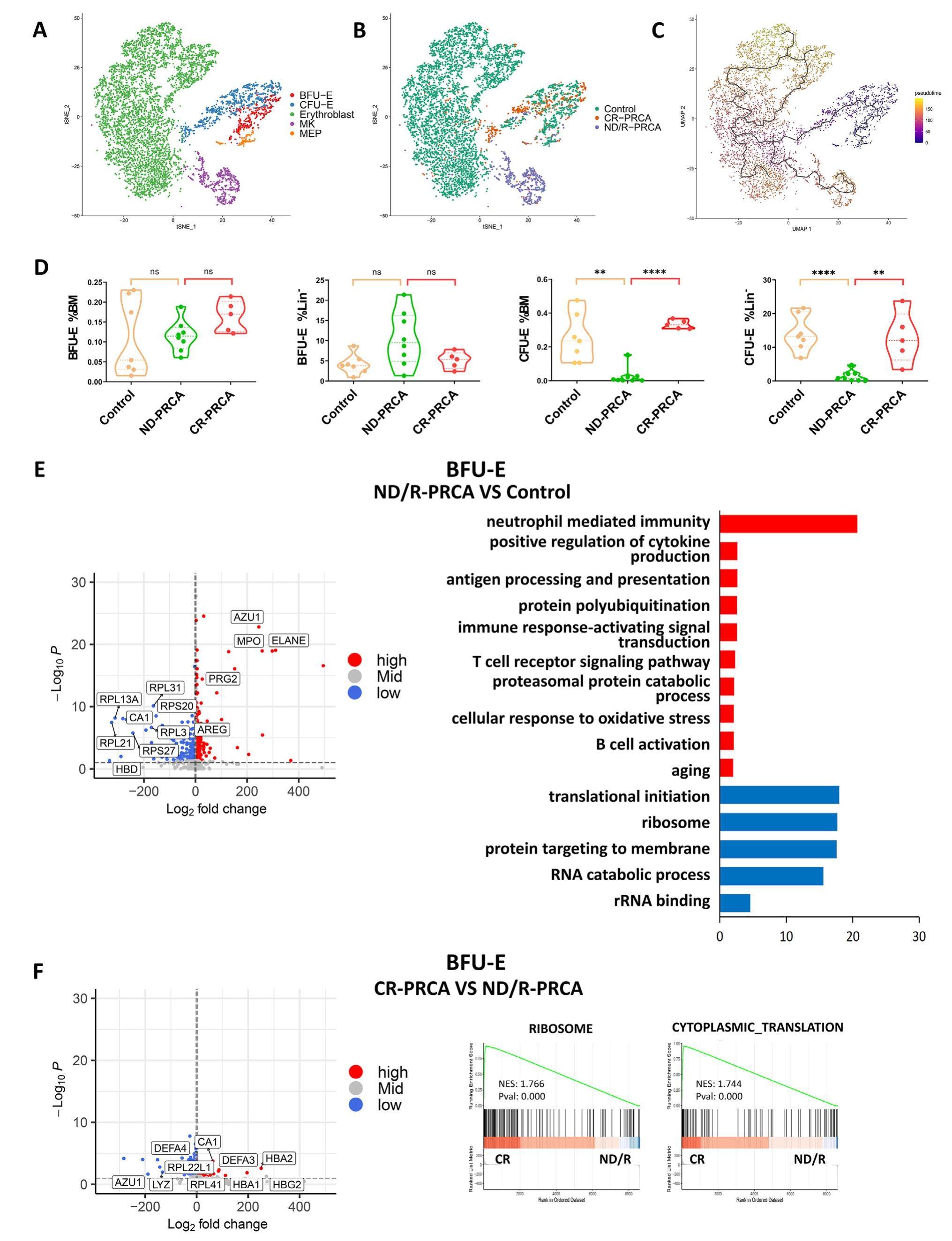
Single-cell RNA sequencing reveals abnormal transcriptome signature of erythroid progenitors in pure red cell aplasia


Pure red cell aplasia (PRCA) is a bone marrow failure syndrome characterized by severe anemia, reticulocytopenia, selective reduction, and even the absence of bone marrow erythroid precursors, while leukocyte and platelet counts are normal. Acquired PRCA can be divided into primary and secondary. Both are mediated by immune responses. Reduction in the quantity and dysfunction of committed erythroid progenitors (EPs), including burst forming uniterythroid (BFU-E) and colony forming unit-erythroid (CFU-E), may be the source of reduced erythropoiesis and needs to be elucidated. High throughput sequencing is of great significance for the in-depth study of reduced or absent EPs. In this study, we used single-cell RNA sequencing (scRNA-seq) to analyze EPs from the bone marrow of PRCA patients, to explore the pathogenesis of PRCA and guide treatments.
